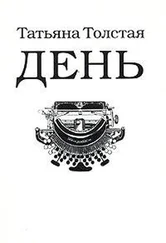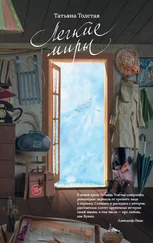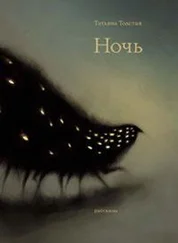As a post office employee, I was able to get into the zoo for free. I would wander to the farthest corners, toward the water, toward the Neva River, where only the birds were, where no one else would go: people want to look at elephants, at polar bears, at giraffes, to visit the nursery where you can pet baby tigers while they’re still harmless, but they don’t go to look at the birds. I decided to pluck a feather from a peacock and to wear it in my hair, or something; I hadn’t yet figured it out. I just really wanted a peacock feather and that was that. It occurred to me to lure the bird with some bread, and when it approached the fence, to grab it by its tail—perhaps the feather would simply fall out. Strewn over there, just out of reach, were a bunch of feathers shed by other peacocks. The enclosure was a dense chain-link fence, and the peacock, untempted by my offering, was eyeing me belligerently, when loud, mocking laughter suddenly filled the air: clearly I’d been discovered by the zookeepers.
I lurched away from the crime scene, hurriedly getting up from all fours, pretending that nothing was going on, brushing the dirt off my knees and assuming an expression of detachment: Who, me? I’m not doing anything, just bent down to read the sign—I can’t see very well. But there was nobody around me, not a soul to be seen in the alleys, while that snide, high-pitched female laughter, loud and derisive, hung in the warm air like an umbrella, like a dome or a semisphere of summer sky—Ha-ha-ha-ha! It hovered above me, above my plans to mug the peacock, above my cheapskate calculations—a kopek saved is a kopek earned—above my plans to bloom and my plans to live. It was as if the Creator had suddenly taken notice of me: So you like to spy on others, do you, you pitiful gnat? I can see right through you! Ha-ha-ha-ha!
It was a moment of truth, albeit an indistinct one: when someone is laughing at you but you can’t see who, unforeseen horizons open up, walls move, lights switch on, a vastness is revealed. I stood there, my feet rooted to the sandy walkway, overcome by a vaguely existential shame. So that’s how it will be at Judgment Day. Ha-ha-ha-ha! The woman—or was it God?—was beginning her third round of denunciatory laughter when I spotted her: light of color, with gray wings and skinny, long legs, beak open and head tilted back, she was laughing inside her enclosure—a Caspian gull, or Larus cachinnans. Go to hell, stupid bird. You scared me shitless.
—
“Please send bedpan and enema.” I went to deliver the telegram: no one was home—delivery slip in the mailbox—back to the post office. “Bedpan and enema no longer needed.” So do they need it or not? What’s happening over there? I asked the boss—she never slept, she just sat there, staring with red, puffy eyes at the uncontrollable world around her—Should I deliver these telegrams or not? They cancel each other out, and there is nobody home! Perhaps they are boating on the Neva? Maybe, to hell with them?
“Deliver both! Instructions are to deliver! Who knows? They might check up on us!”
I attempted to deliver these mutually exclusive requests once, and then again, and then for a third time, to the mysterious owners of the colonic irrigator. I walked back and forth well into the night, but the apartment was silent: nobody ever opened the door, nobody called the post office; nobody was home the next day, or the one after that.
And then I got tired of it all, and I quit.
The cripple watched me go with disapproval: he knew, he just knew I’d make a lousy soldier of the Post Office. The boss lady was already nervously contemplating her next recruit—fresh out of prison, he was as white as a drowned man; he was being led around by the hand by his beautiful young wife, who wore an enormous, puffy gold bracelet. “Do you think I can trust him?” the boss lady asked me, without bothering to wait for an answer, as she was talking to herself.
I left, taking home a whopping thirty-five rubles, the equivalent of an honor student’s monthly stipend. I feasted on black currant ice cream with syrup and then went to my parents’ dacha: July promised to be just as lovely as June had been. And indeed, it was. Only it seemed to me for a long time afterward that the world had changed imperceptibly. As if the noise and the interference had quieted down somehow. Or perhaps I’d simply gone deaf.
N. has died.
He and I had something akin to a flirtation, bordering on—but never quite materializing into—an affair. He was hopeful, and I, for some reason, kept leading him on. Being nineteen, it all seemed oh so fun, but not without its dangers: What if he latches on and won’t let go?
Me, personally, I was interested in the Real Thing, in Grand Emotions. But someone else’s feelings? Eh, not so much.
Perhaps he had suspected me of treachery, of playing a dirty game, but nonetheless persisted in his gentle yet tenacious wooing. He invited me to his country house, which was at the farthest end of the railway line, an hour from Leningrad. I was torn: the invitation implied a romantic liaison, and I didn’t want one. Yet one can’t just go around discarding admirers, right? You never know. And so I promised to come, thinking I’d just figure it all out when I got there.
It was the end of May, warm. I boarded the train and rode for a long time, and then walked for a long time to reach his small, wooden dacha. All the while, I was plagued with doubts—Why am I doing this? Is it the right thing to do? Perhaps it’s best to turn around? It was as if some dour, unpleasantly moralistic being had materialized from thin air to give me reproachful looks: Turn around, girl; this isn’t right, this isn’t right. It wasn’t the first time that I’d felt the presence of this moralizer, this third wheel, and he pissed me off. “What’s it to you?” I replied into the ether. “What? I’m curious. I do what I want. So buzz off!” That’s what they used to say back in the days of my youth—“Buzz off!”
A light was on in the window. I carefully made my way through the wet, versperal grass and peered in. There was a brief moment of darkness during this white night in May. He was sitting at a table—kitchen? dining room?—reading a book propped against a teakettle and nibbling on a piece of something hanging off his fork. His face was slack and purposeless, as is often the case when someone is reading. I took in his—let’s be honest—handsome profile, his chin, his neck, his hands. I didn’t love him. My heart didn’t beat any faster, my breathing was unaffected, my eyes didn’t brim with tears. Silly, pompous words—the kinds that are embarrassing to remember later—didn’t bubble up in my brain. Grandiose, impossible plans didn’t crowd my imagination.
N. was having tea and waiting for me. I stood beneath his window, surrounded by stinging nettle; he didn’t sense my presence. I quietly moved through the underbrush and walked away—back to the station. As luck would have it, the last train for the night had already departed, and the next one wasn’t due until six in the morning. Dangerous-looking drunkards were milling about—staying here was out of the question.
I walked back to N.’s dacha but decided not to knock. In the garden I spotted a large shed, and I gingerly climbed into its loft. There was some hay there—or what was left of it, anyway—gathered at an unknown time and for unknown purposes. In the corner there sat a pile of old newspapers dating back to the 1940s, probably from when the dacha was built. I lay down in the hay, lining it with the newspapers, and bundled myself up in my sweater. My legs remained uncovered, and they were feasted upon by mosquitoes. The temperature dropped; I was shaking from the cold. Never before had I slept in the loft of a shed; I was a good little homegrown city girl. My parents were probably at their own dacha and they surely presumed that I was home in the city, getting ready for my exams. My Big Unrequited Love, too, had no idea of my misadventures. Not a soul, including N., knew of my whereabouts. I was nowhere.
Читать дальше






